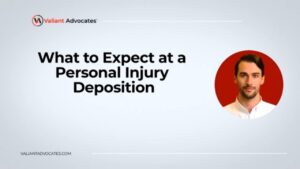A deposition is an important part of the personal injury claims process. During a deposition, you will be asked questions by the defendant’s lawyer under oath in order to determine damages and liability. It is important to understand what to expect during a deposition so that you can prepare yourself and answer questions accurately. Here is a look at some common deposition questions.
Questions About Your Injury
Questions about your injury are designed to help the defendant’s lawyer better understand your situation and how it has impacted your life. They may ask how you were injured, when it happened, where it happened, who was there, and what medical treatment you received. Be as detailed as possible when answering these questions; the more information they have about your injury, the better they can assess the validity of your claim.
Questions About Your Medical History
The defense will likely ask about any preexisting conditions or injuries that might have contributed to or exacerbated your current injury. It is important to be honest here; if you fail to disclose any pertinent information about your medical history, it could hurt your case in court. Do not be afraid to bring up any relevant medical issues—just make sure that you are prepared with clear explanations for why they are related to the accident in question.
Questions About Your Employment History
The defense may also ask questions about your employment history or educational background. These types of questions are used by the defense so they can better understand how much money they should be liable for in damages. Again, make sure that you provide clear and accurate responses so that the defense can get a full picture of your financial situation prior to the accident occurring.
Final Thoughts
Depositions can be intimidating but with some preparation, they do not have to be overwhelming experiences. Knowing what types of questions will likely come up during a deposition helps ensure that you are well-prepared when it comes time for yours. Remember that this is an opportunity for you to tell your story and establish fault on behalf of the defendant—make sure that you take advantage of it!


